Ruin of Path
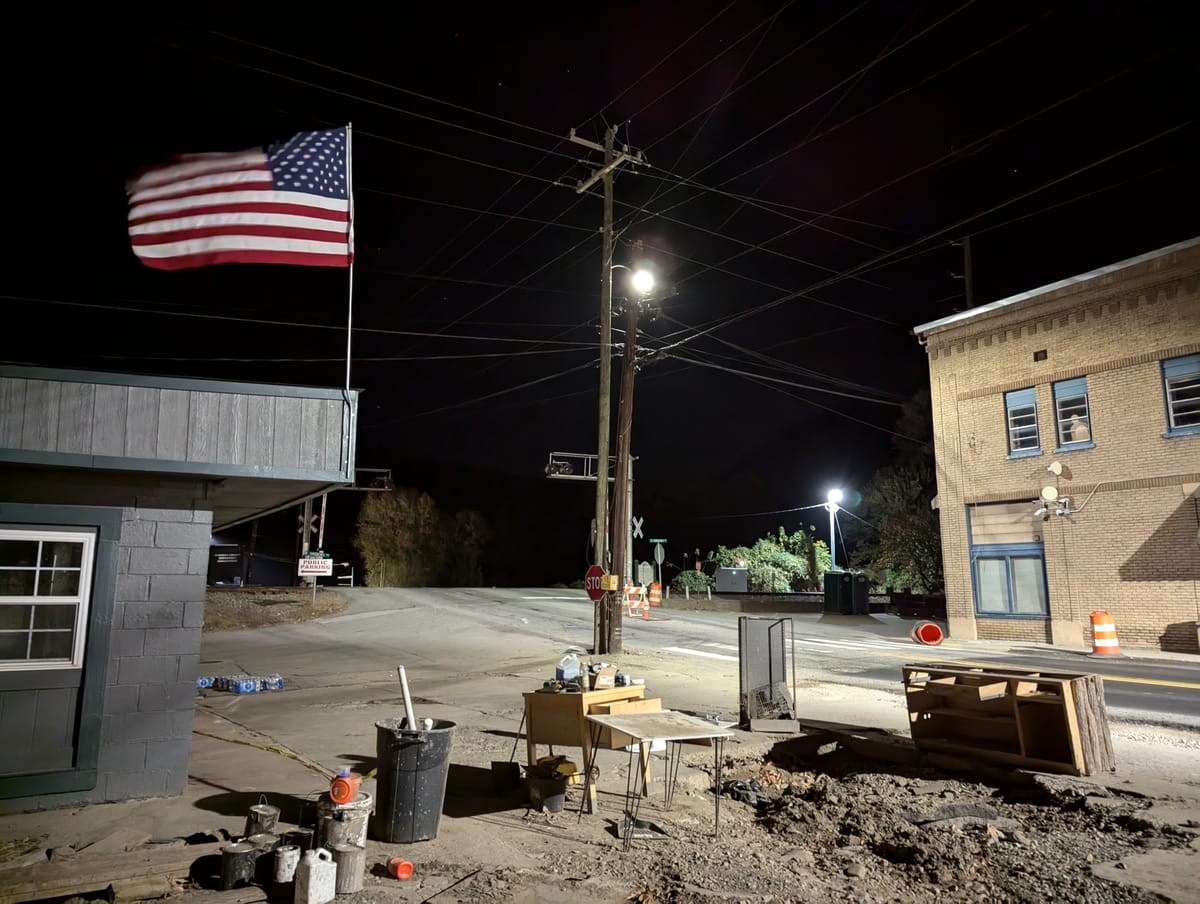
After the Midwest road trip I spent a night at home, then set out for Hot Springs, NC the next day. A month after Helene brought high winds and water to the region, I knew essential infrastructure would probably be at or near most of the trail towns, but otherwise didn't know what to expect.
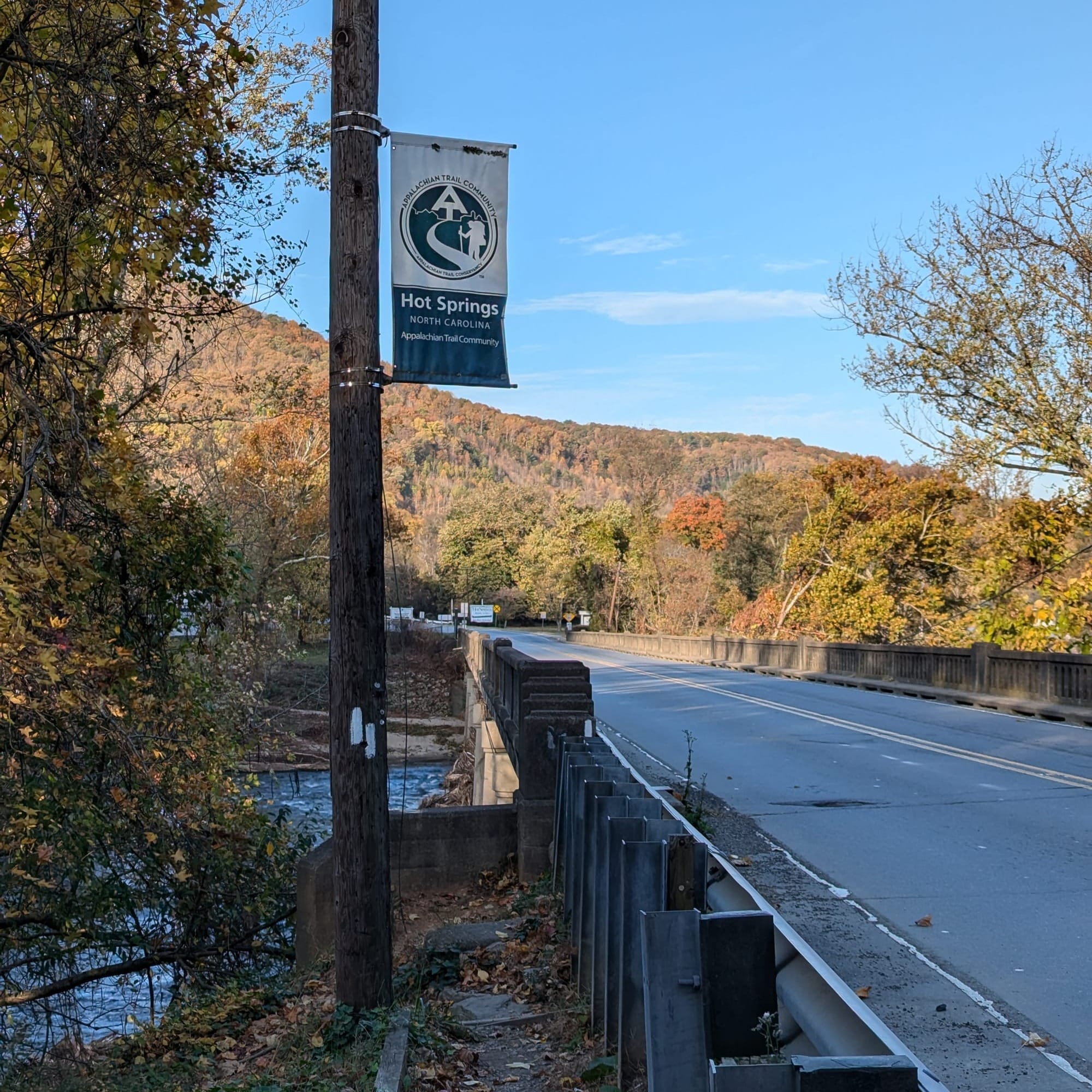
I found a web site with details of Hot Springs recovery coordination, including contact with the supervisor and the location of an info tent. I told the coordinator I could do IT work and they connected me with a local resident who wanted help with their satellite dishes.
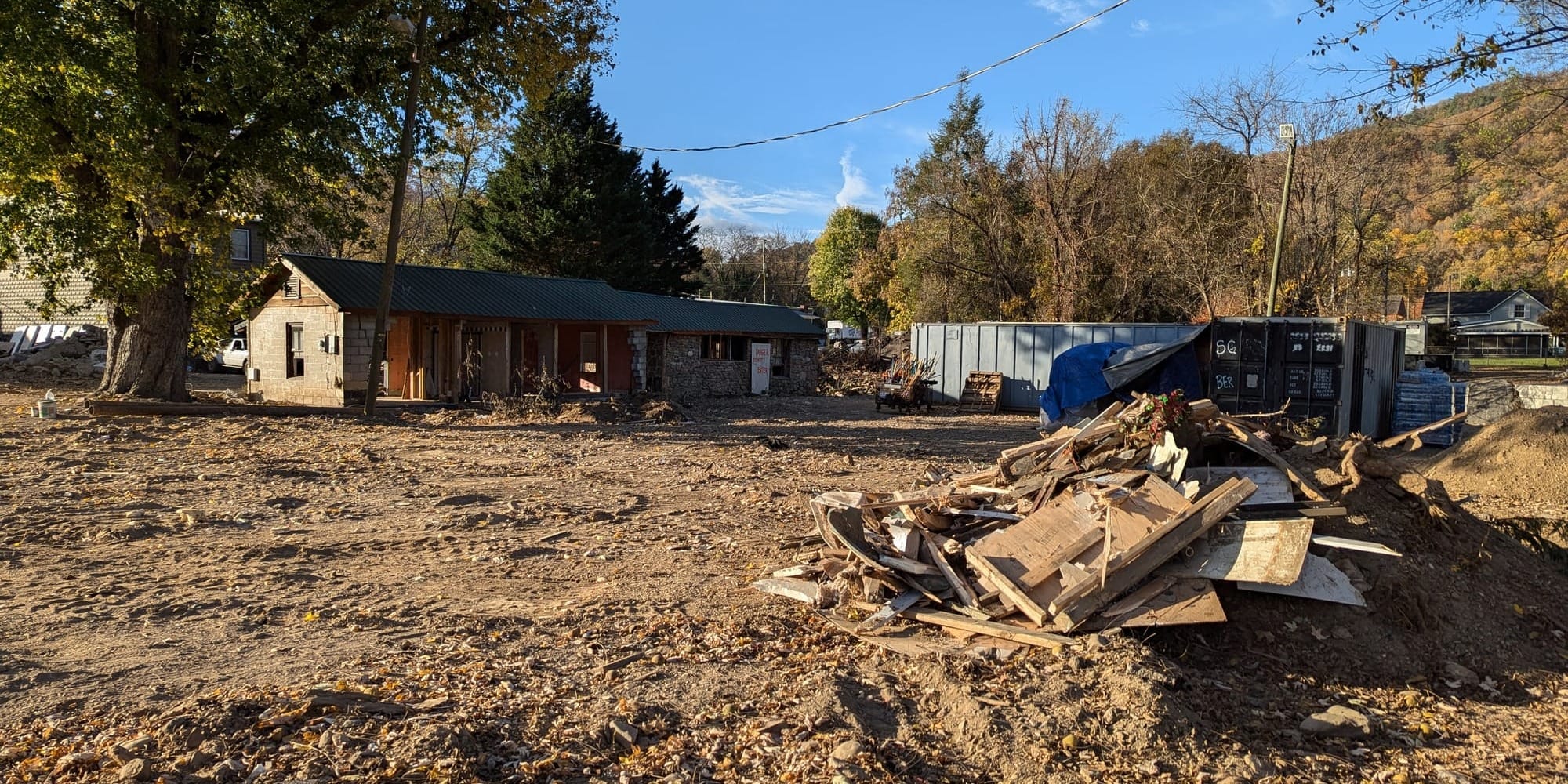
The damage in Hot Springs was still very apparent. Most of the downtown businesses were closed, except for the grocery and convenience stores which seemed well stocked. The ground was covered in silt and piles of debris littered the alleys and empty lots. Some of the locals are still displaced, their houses damaged or condemned. Without the shops open at peak fall season, many rely on charity to cover rent in the meantime.
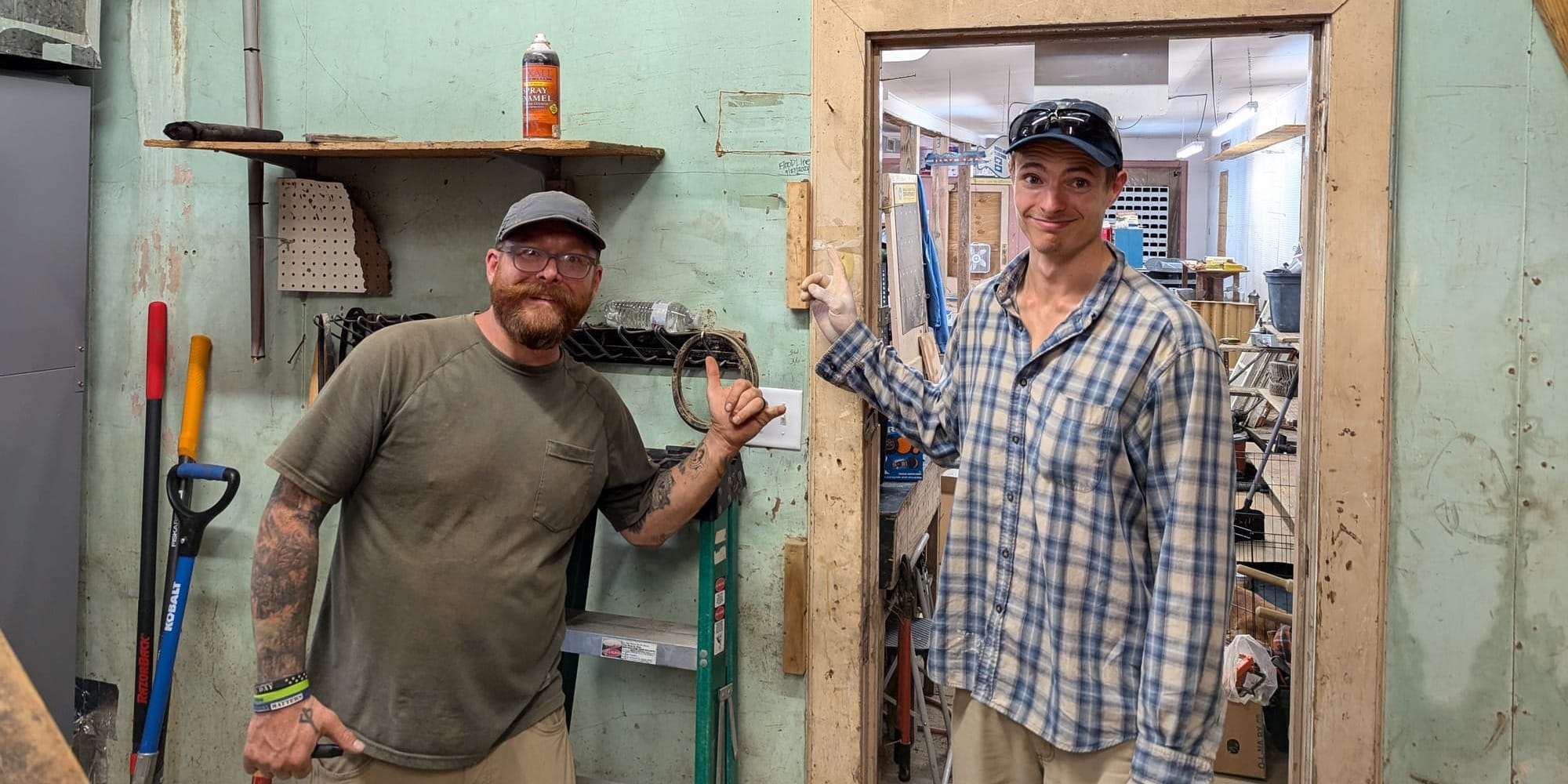
Where the AT crosses the bridge and goes down by the river, I remembered houses and shacks near the shore. Now it was only a dirt lot.
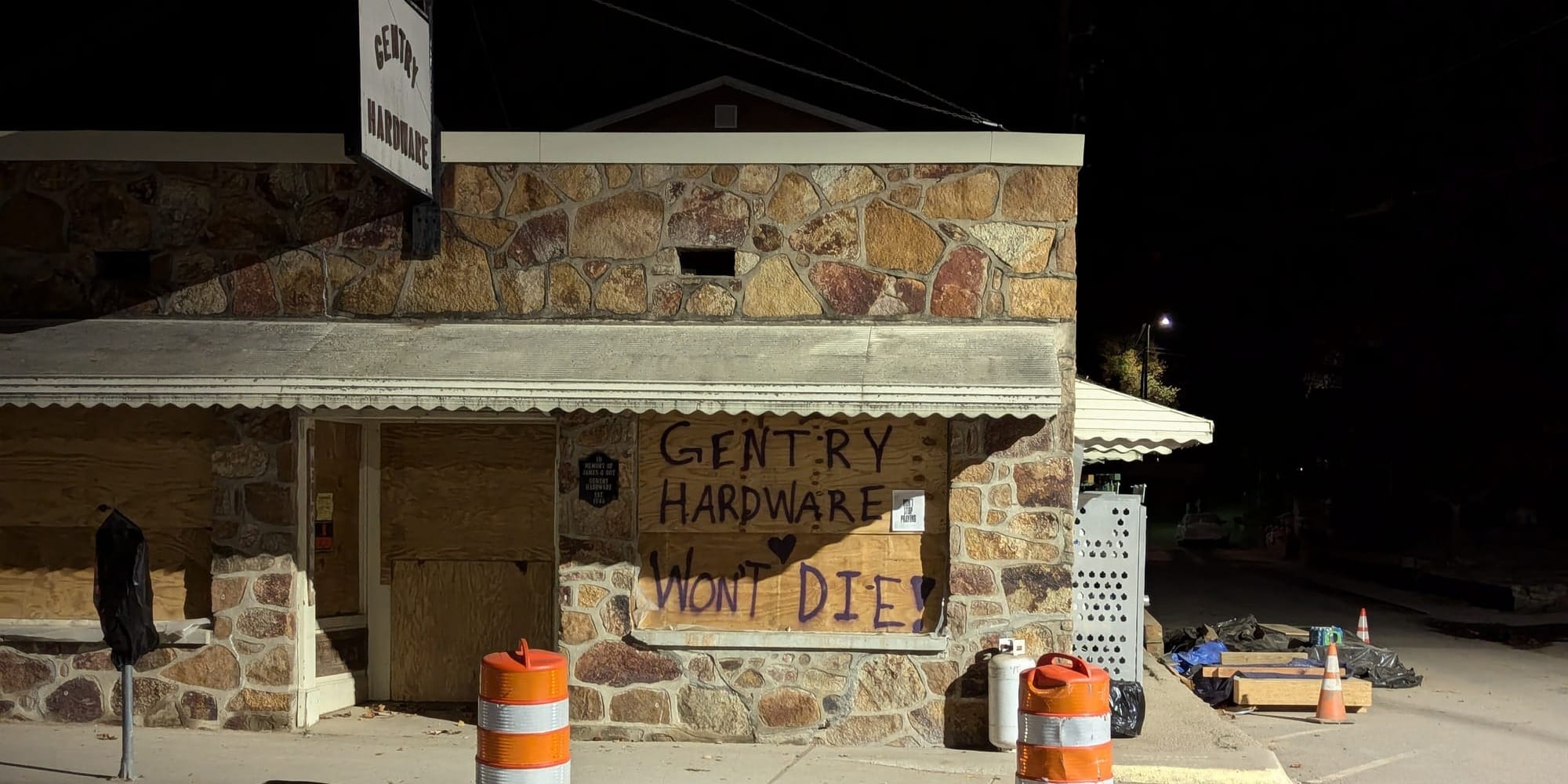
I spent the night in the car and walked up the hill to the volunteer tent in the morning. Within two minutes they had given me a pair of gloves and sent me down to help the hardware store recover their inventory.
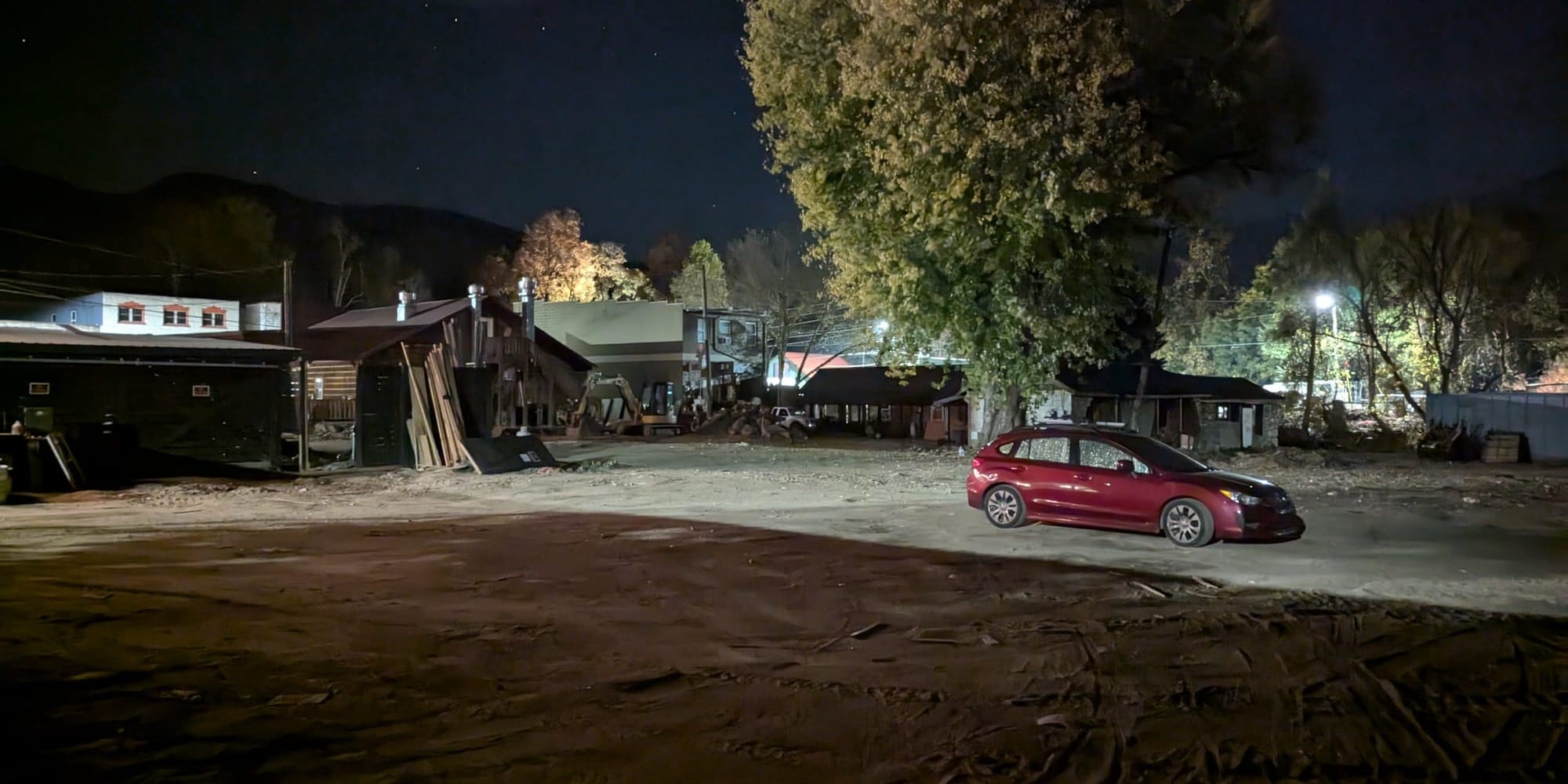
Gentry's Hardware is a Hot Springs institution, owned by the same family since the 40's and the only shop of its kind in the area.
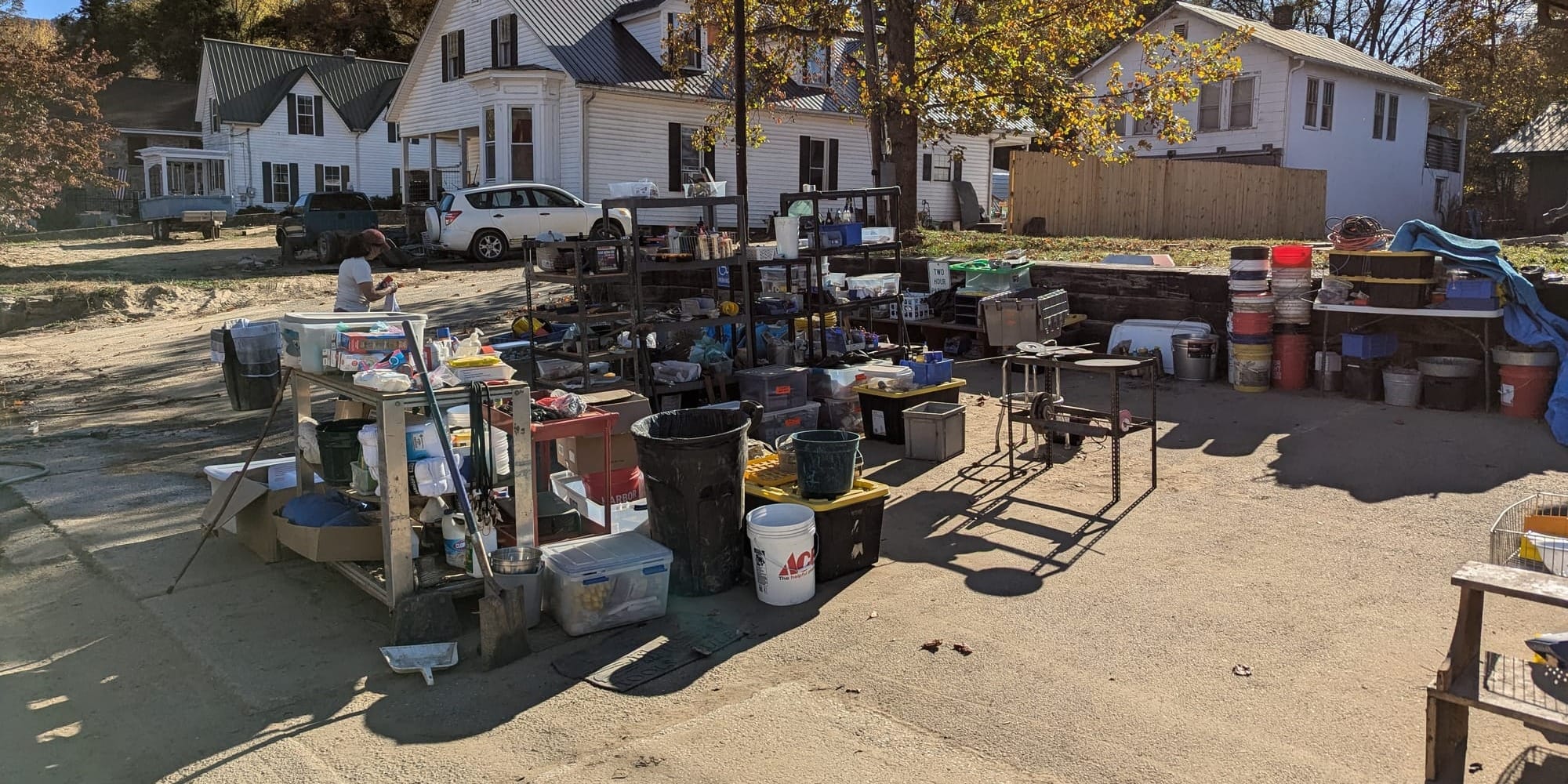
I spent the day cleaning and sorting bins of sockets, wrenches, and other salvageable tools. Meanwhile, other volunteers were under the building pouring new footers and replacing the entire floor of the building.
The next day I drove to Damascus, VA to walk in to the donation center listed on their recovery web site. It was unexpectedly closed. I also contacted a volunteer organization, but didn't get a reply. It seemed like they didn't have the same kind of volunteer funnel as Hot Springs. The street was relatively clean and some of their downtown businesses were open on a Friday, but others were closed. Houses on the low side were looking rough. I spent some money at the outfitters, ate at the Dairy King, had a chat with the ATC staff, and headed home.
Next I went to Erwin, TN, having seen a flyer for a Saturday volunteer rally. After signing a waiver, they dispatched groups to various locations near town. I went to Rocky Fork State Park, a beautiful primitive park I had never visited before. We walked down the road clearing brush.
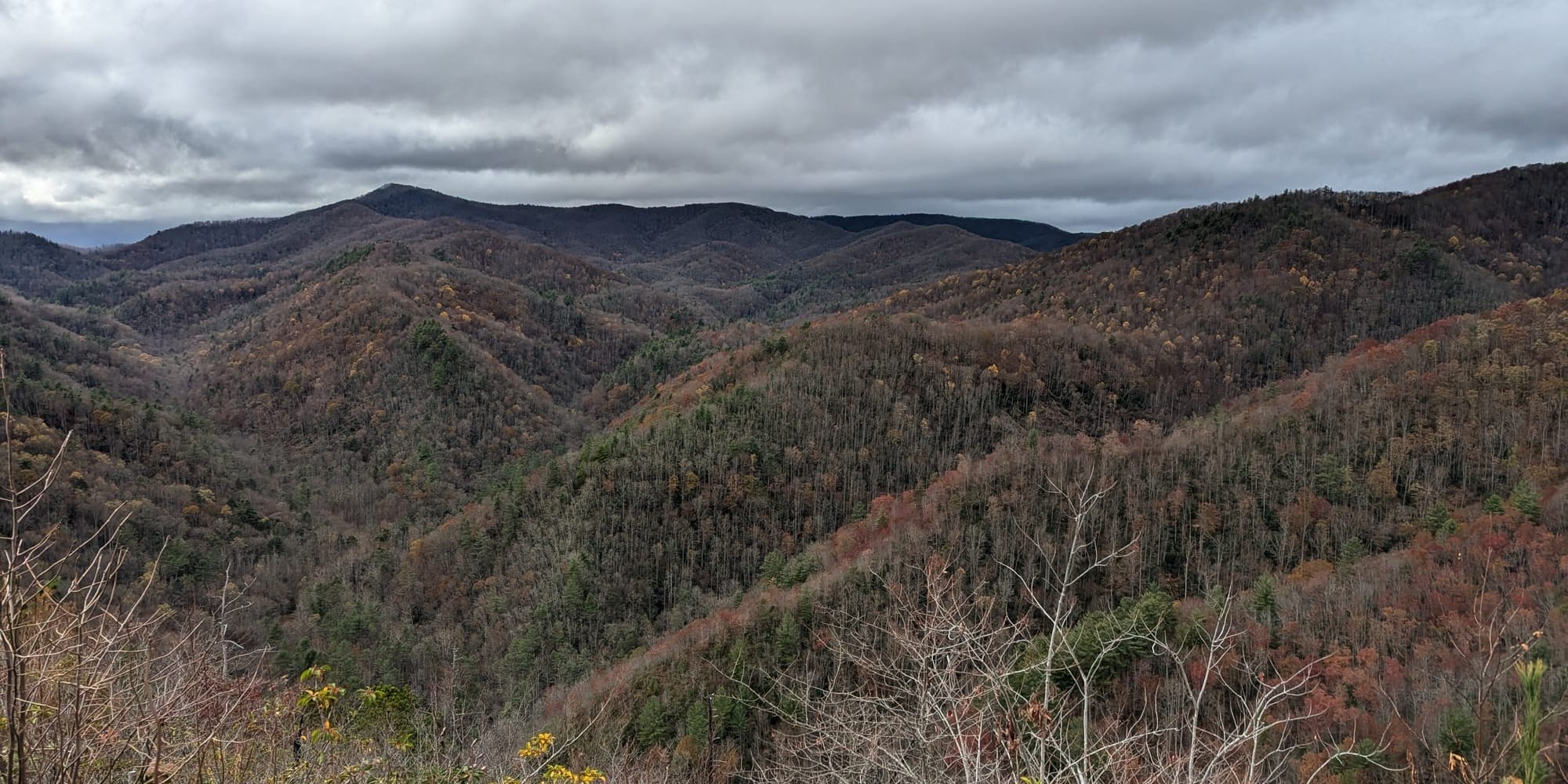
We had lunch in the park and some volunteers wanted to keep working, so they sent us to Red Banks campground on the other side of Erwin. This was a campground on the shore of the Nolichucky River, and the most "ground zero" area of Helene damage that I saw personally.
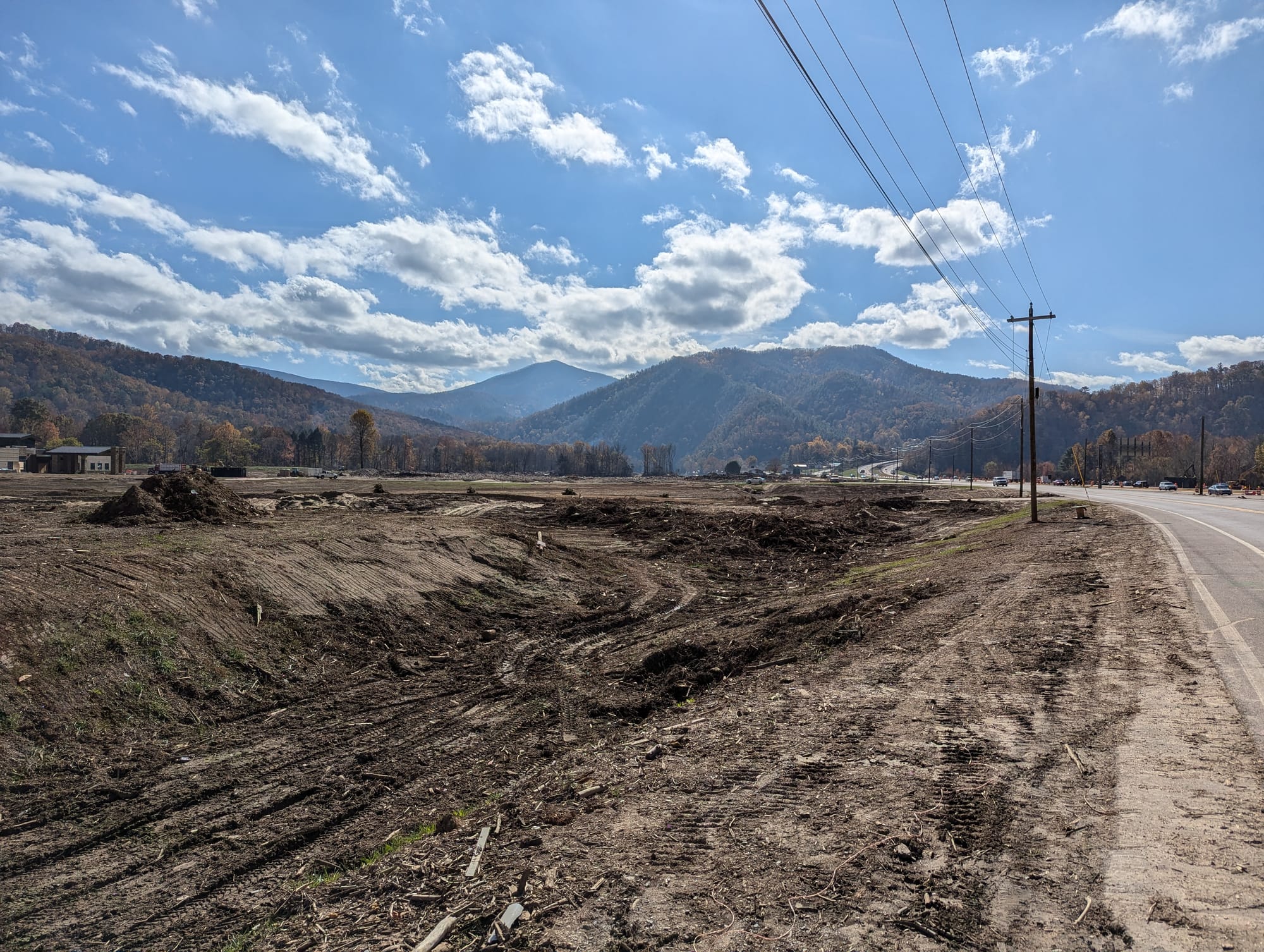
The 300 yards of ground between the Nolichucky and I-26 were a silty wasteland. I walked across it picking up pieces of plastic and metal. Children's play equipment. An assortment of farm implements. Twisted chunks of guard rails and road signs. A handicap parking sign. Chunks of power tools, lumber, and walk-in coolers. Tires of all sizes. There were two marble tombstones, broken in half, which I did not disturb. It was like a scene from Mad Max, visiting the ruins of a fallen civilization.
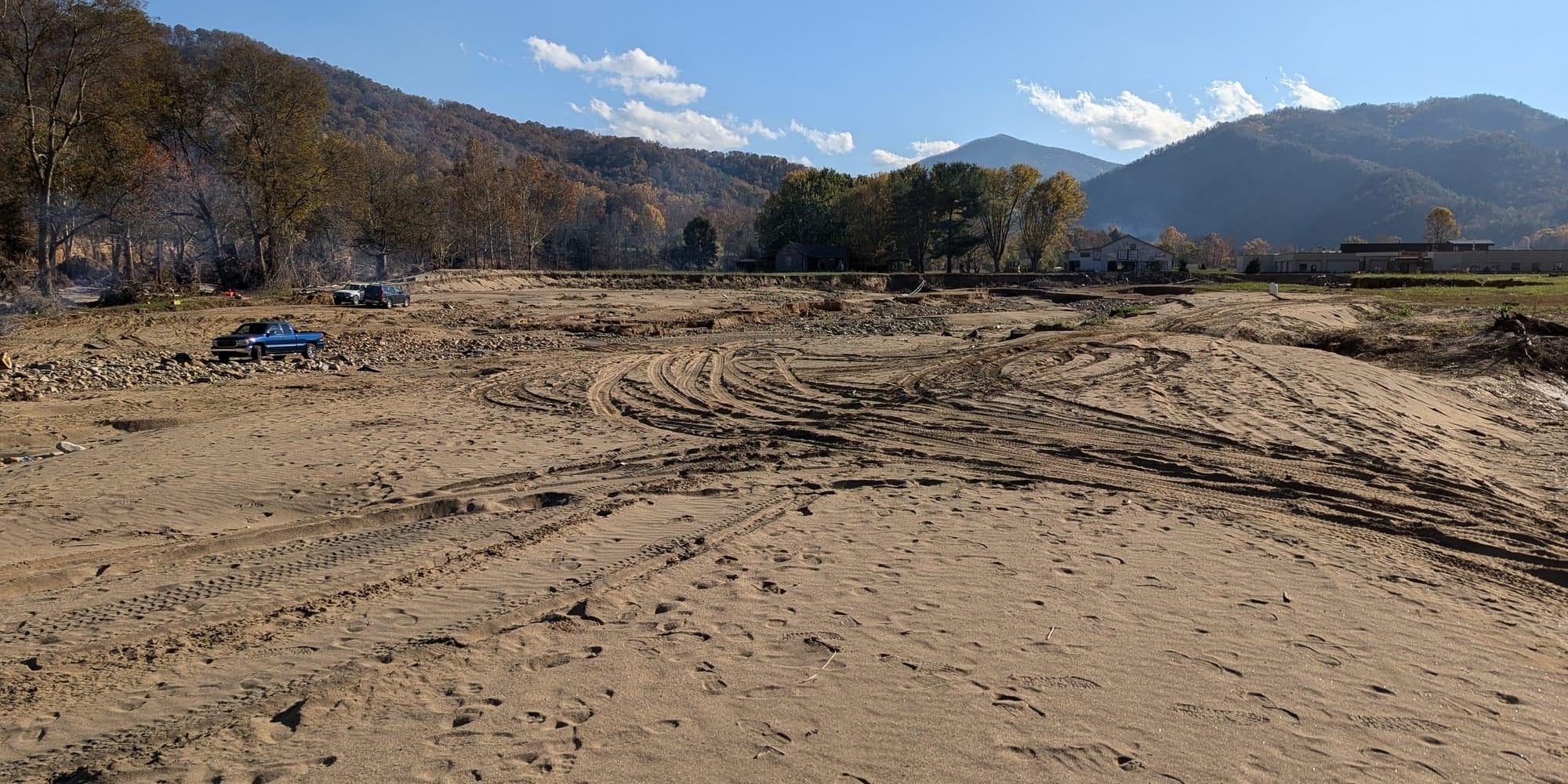
Closer to the banks of the river, volunteers were clearing debris. Any trees strong enough to withstand the brutal force of the flood waters were wrapped in thick nests of brush and trash. Chainsaws buzzed constantly. Everybody else hauled logs and branches to bonfires. Smoke and ash hung low to the ground. This was the only place I saw workers pause and take in the scope of destruction and the amount of work ahead.

Another volunteer told me about their experience with another town in another part of the country recovering from a major flood. Help came for about a week, then it dried up before businesses could reopen and everyone moved out because they couldn't afford to exist there without work. It's heartening that people are still showing up to help after a month, but on the other hand there is still a lot to do. The region is strong together, and it will never be quite the same. Maybe it will be even better?
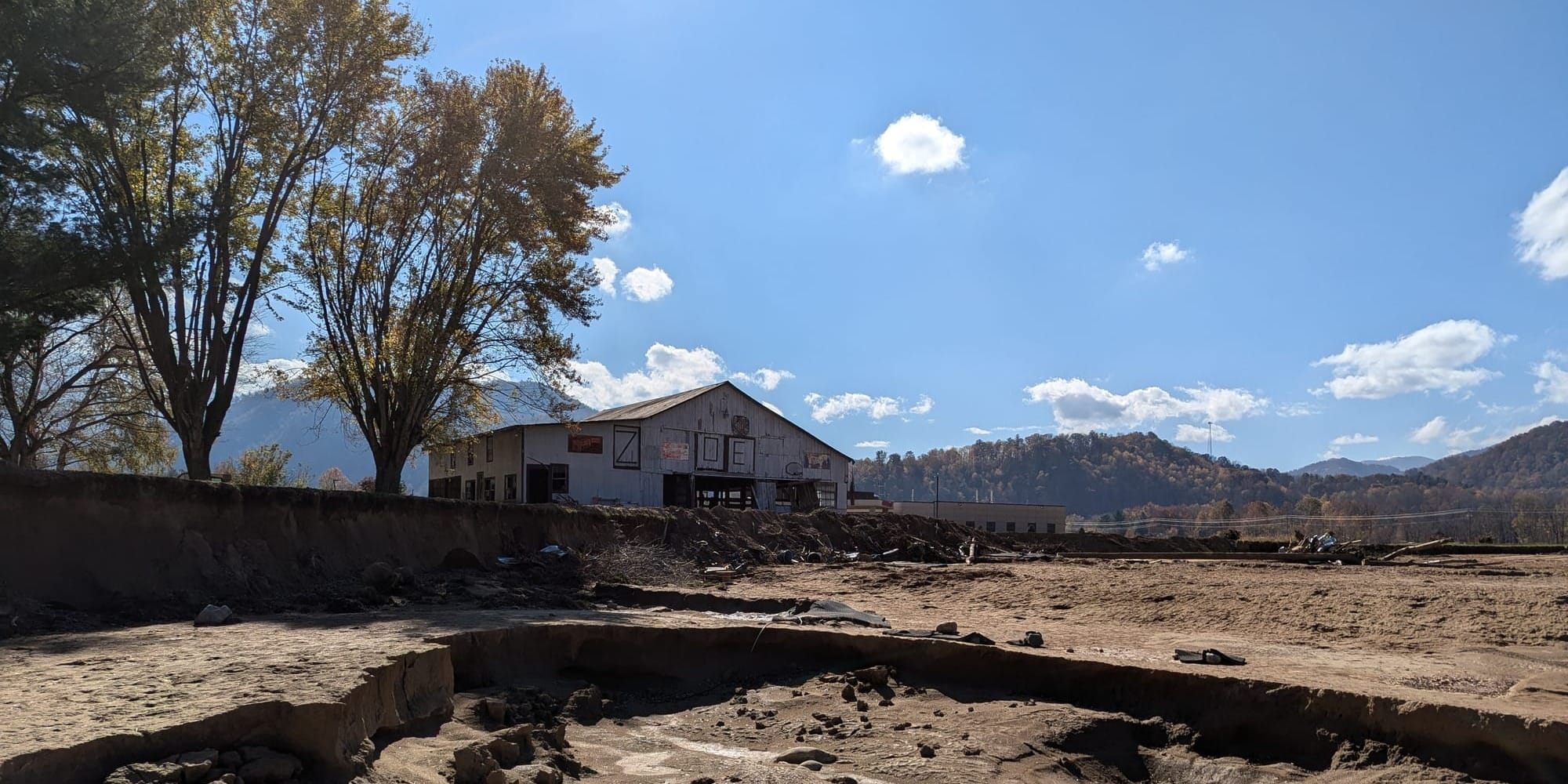
Keep helping if you can.